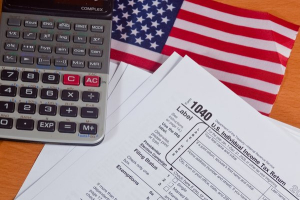 Pending any immediate changes under a new administration, tax officials say low inflation rates will ensure that current tax brackets and most other tax system features will change only slightly in 2017 with the exception of effects of health coverage mandates.
Pending any immediate changes under a new administration, tax officials say low inflation rates will ensure that current tax brackets and most other tax system features will change only slightly in 2017 with the exception of effects of health coverage mandates.
The standard deduction will rise $50 for individuals to $6,350 from $6,300. The personal exemption increased $4,050 in 2016 and will remain the same in 2017. The standard deduction for married filing jointly rises $100 to $12,700.
The personal exemption for tax year 2017 remains at $4,050. However, the exemption is subject to a phase-out that begins with adjusted gross incomes of $261,500 ($313,800 for married couples filing jointly). It phases out completely at $384,000 ($436,300 for married couples filing jointly).
But for those taxpayers who do not maintain the minimum essential health coverage in 2017, the penalty which is collected by the IRS will increase significantly. The charge for failing to have qualified health insurance coverage will be $695 or 2.5% of income for individuals and $2,085 or 2.5% of income for families. The penalty was $325 for individuals and $975 for families in 2015. That was an increase from the penalty of $95 for individuals or $285 for families in 2014.
The 2017 top individual tax rate of 39.6% will apply to income above $470,000 for married couples, up from $466,950. The Affordable Care Act (ACA) or ‘Obamacare’ mandates that high-income taxpayers pay another 3.8% surtax on net investment income, so the top federal income tax rate for individuals is actually 43.4% and will remain at that level pending a possible ACA repeal.
Qualified dividends and long-term capital gains are also taxed an additional 15% or 20% depending upon income and are subject to another 3.8% net investment income tax.
Estates of decedents who die during 2017 have a basic exclusion amount of $5,490,000, up from a total of $5,450,000 for estates of decedents who died in 2016.
These rates are set to apply to 2017 taxes which will be filed in early 2018.
Call us at McRuer CPAs if you have any questions: 816.741.7882 or contact us online by clicking here.
 is now
is now 
